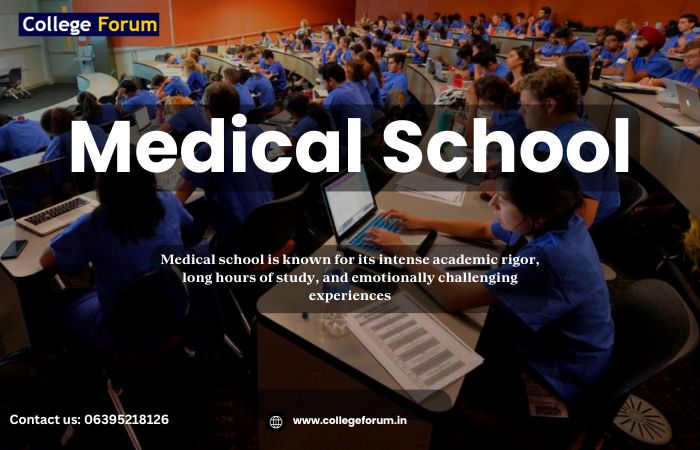Medical Entrance Exams: (9) Key Tips for Success
Medical Entrance Exams: Winning Success Basic training is preparation work for Medical Entrance Exams, which the majority of students have to undergo to become doctors. The reason why such exams are tough is not only because of the large syllabus covered but because of the stiff competition it offers. When lakhs of candidates appear each year for exams like NEET, AIIMS, JIPMER, and so on, it requires some strategy, dedication, and smart work to stand out in the crowd. And therefore, in this all-inclusive guide, we shall cover some of the essential tips that shall lead you to excel in Medical Entrance Exams, thereby making sure that all factors that contribute to a good rank are taken care of. 1. Get Deeper Insight into the Exam Pattern and Syllabus Knowing the exam pattern and syllabus is the most important step in preparation for Medical Entrance Exams. This will help you better plan your preparation as you will know what to expect beforehand. Again, a choice between exams like NEET or AIIMS has to be made based on individual priorities, and their respective syllabus differs considerably, with an over-all focus being placed on Physics, Chemistry, and Biology. NEET generally comprises 180 questions-45 each from Physics and Chemistry, and 90 from Biology. AIIMS is also based on similar topics but carries additional general knowledge and aptitude questions. Download an official syllabus for test prep, then divide up a particular subject area into its subtopics within the major areas. This way you know which topics will weigh more highly and so can start by first learning the most valuable topics. 2. Impose Feasible Study Schedule Only after well gauging the syllabus, draft a feasible and balanced study plan. Incidentally, an elaborately framed study schedule is going to substantially influence how you will approach your preparation. An effective time management emerges as the most vital activity of planning for Medical Entrance Exams. Hence, distribution of your study hours wisely among all subjects too becomes equally very important. Give more time to subjects or topics with which you haven’t got a very high rate of confidence. Divide your day into slots, one subject per time Always fix some time for revising and periodical testing Keep your study plan flexible so that it may be modified while keeping track of your progress. Don’t stuff all the subjects into just one day, have an aim for your in-depth study and conceptual clearness. 3. Conceptual Clarity Don’t make the mistake in medical entrance exams, of relying entirely on rote learning. Your basic understanding will be tested, not just on the amount you remember but on how well you understand the concepts. For example, in Physics and Chemistry, if the mere rote learning of formulae and concepts is not understood, without them making sense of the core concepts, then it cannot be relied upon. For Physics, my general idea is that first of all, one should understand the concepts he or she is dealing with, rather than attempting to solve hundreds of problems. “Memorizing formulas for formula’s sake” or merely practicing a large set of problems is unlikely to enable you to develop a working relationship with difficult questions, which almost always require application. In Chemistry, particularly organic, it may be necessary to become familiar with reaction mechanisms rather than memorize them. Biology since it is the biggest part of exams like NEET it requires memorization as well as an understanding. Use diagrams, charts, and flowcharts, and you see the processes visually and remember them better. Always ensure that you understand the “why” and “how” behind every concept rather than just the “what.” 4. Practice and Mock Tests regularly One of the best methods to prepare for Medical Entrance Exams is to solve previous years’ papers and give mock tests. It gives an idea of practicing questions as it comes in real examinations, which types of questions are normally asked, which ones would be easy, which are going to be challenging, and where you might lose time. Mock Tests: These mock tests are close to the examination scenario in which you might learn to handle your tension and your time even better during the actual examination. Also, it will enlighten you about your strong and weak areas. Previous Years’ Papers: These papers will provide you with an insight into the repeated patterns of questions as well as important topics, which tend to crop up again and again. Time Management: Ensure that you practice solving questions in a time frame so that there isn’t a time constraint while doing the actual examination. Many online websites can be found offering free or paid mock tests specifically for Medical Entrance Exams. Practice them to analyze yourself. 5. Revise Thoroughly Revision is the most important aspect of preparing for Medical Entrance Exams. There is much to study, and you are likely to forget what you have read several months ago. So, effective revision ensures that no time later would you forget to recall something. You should revise each topic thoroughly immediately after you read it once. Have a notebook of key formulas, reactions, or points that you can return to study and review over and over again. Flashcards are also very useful in a last-minute review when trying to cram information in for a long list of biological terms, chemistry reactions or physics formulas. The final months leading up to the marking of the exam is characterized by intensive revision rather than learning new topics 6. Use High Quality Study Materials Comes out of Medical Entrance Exams requires the selection of right and appropriate study material to clear them. NCERT is the backbone for Physics, Chemistry, and Biology, but the additional reference books are found very useful for deep understanding and further practice. All the subjects NCERT Books: It is the base of all the books, and you will study all the basic things that you should
Medical Entrance Exams: (9) Key Tips for Success Read More »









